-
 bitcoin
bitcoin $87959.907984 USD
1.34% -
 ethereum
ethereum $2920.497338 USD
3.04% -
 tether
tether $0.999775 USD
0.00% -
 xrp
xrp $2.237324 USD
8.12% -
 bnb
bnb $860.243768 USD
0.90% -
 solana
solana $138.089498 USD
5.43% -
 usd-coin
usd-coin $0.999807 USD
0.01% -
 tron
tron $0.272801 USD
-1.53% -
 dogecoin
dogecoin $0.150904 USD
2.96% -
 cardano
cardano $0.421635 USD
1.97% -
 hyperliquid
hyperliquid $32.152445 USD
2.23% -
 bitcoin-cash
bitcoin-cash $533.301069 USD
-1.94% -
 chainlink
chainlink $12.953417 USD
2.68% -
 unus-sed-leo
unus-sed-leo $9.535951 USD
0.73% -
 zcash
zcash $521.483386 USD
-2.87%
Is USDT suitable for daily consumption payments?
USDT's volatility, high transaction fees, limited merchant acceptance, security concerns, and regulatory uncertainty make it unsuitable for everyday payments despite its dollar peg.
Mar 14, 2025 at 03:26 pm
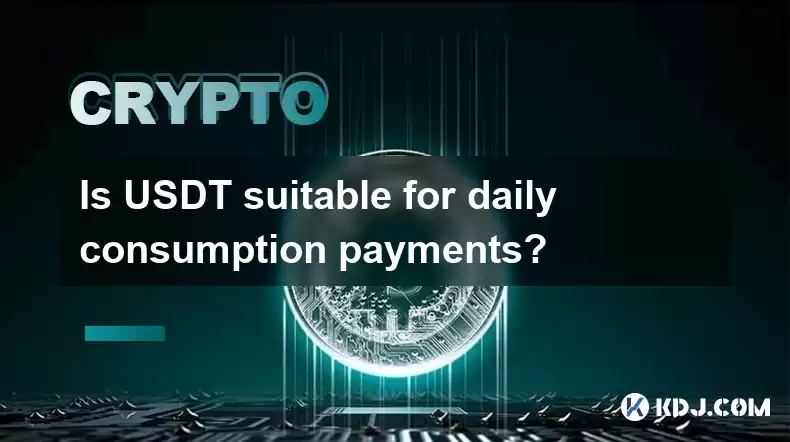
- USDT's volatility and price fluctuations pose a risk for daily use.
- Transaction fees and processing times can be variable and potentially expensive.
- Merchant acceptance of USDT is limited compared to traditional payment methods.
- Security concerns related to Tether's reserves and potential hacks exist.
- Regulatory uncertainty surrounding USDT usage impacts its suitability for widespread adoption.
The question of whether Tether (USDT), a prominent stablecoin pegged to the US dollar, is suitable for daily consumption payments is complex. While its dollar peg aims for price stability, several factors significantly impact its practicality for everyday transactions. The core issue revolves around its inherent volatility, despite the intended stability, and the challenges of widespread merchant acceptance.
One major hurdle is the inherent volatility of USDT, even if minor. Though aiming for a 1:1 ratio with the USD, USDT's price can fluctuate, albeit often within a narrow range. These fluctuations, however small, introduce uncertainty for both consumers and merchants. A purchase made with USDT today might be worth slightly more or less tomorrow, creating unpredictability in budgeting and pricing.
Transaction fees associated with USDT transfers vary depending on the network used (e.g., Ethereum, Tron). These fees can be unpredictable, adding an extra cost to everyday purchases that traditional payment methods often avoid. Furthermore, transaction processing times can also be significantly slower than traditional payment systems, causing delays in completing purchases.
A significant barrier to USDT's daily use is the limited merchant acceptance. While some businesses are accepting cryptocurrency payments, the majority still predominantly rely on traditional methods like credit cards and bank transfers. Finding merchants who readily accept USDT for everyday purchases remains a significant challenge. This limited acceptance drastically reduces the practicality of using USDT for daily transactions.
Security concerns also play a crucial role. Questions surrounding the reserves backing USDT and the potential for hacks or security breaches continue to be debated within the cryptocurrency community. The risk of losing funds due to platform vulnerabilities or unforeseen events is a significant deterrent to using USDT for everyday spending, where the potential loss carries greater weight.
The regulatory landscape surrounding cryptocurrencies, including USDT, remains uncertain globally. Different jurisdictions have varying regulations, and the legal status of USDT and its usage for payments can be unclear. This regulatory uncertainty creates additional risk and makes it difficult for businesses to confidently adopt USDT as a payment method. This ambiguity hinders widespread adoption for daily use.
The speed and efficiency of USDT transactions are dependent on the network used. While some networks aim for fast processing, network congestion can lead to delays. This unpredictability in transaction speed makes it less reliable than instant payment methods commonly used for daily purchases. The lack of consistent, speedy transaction finality is a key drawback for daily usage.
Furthermore, the integration of USDT into existing payment infrastructure is still in its early stages. The user experience is often less streamlined than with established payment methods, requiring users to navigate cryptocurrency wallets and exchanges, which might be a barrier for less tech-savvy individuals. This complexity adds an extra layer of difficulty to daily transactions.
Finally, the potential for scams and fraudulent activities associated with cryptocurrency transactions, including those involving USDT, remains a concern. Consumers need to be vigilant and exercise caution to avoid falling victim to scams, which adds another layer of complexity and risk to using USDT for daily payments. This added layer of security risk makes many hesitant to utilize USDT for daily purchases.
Frequently Asked Questions:Q: Is USDT as stable as the US dollar?A: While USDT aims for a 1:1 peg with the US dollar, its price can fluctuate slightly due to market dynamics and factors related to its issuer, Tether. It's not a perfect representation of the US dollar's stability.
Q: What are the transaction fees for using USDT?A: Transaction fees vary based on the blockchain network used (e.g., Ethereum, Tron) and network congestion. They are generally higher than traditional payment methods.
Q: Where can I use USDT for payments?A: Merchant acceptance of USDT is still limited compared to traditional payment methods. The number of businesses accepting USDT is growing, but it's not widely adopted for daily purchases yet.
Q: Is USDT safe for daily use?A: Security concerns regarding Tether's reserves and potential hacks exist. While many users find it safe, inherent risks are associated with any cryptocurrency, and precautions should be taken.
Q: What are the legal implications of using USDT for payments?A: The regulatory landscape for cryptocurrencies, including USDT, varies significantly across jurisdictions. Legal clarity and acceptance are still evolving, adding to the uncertainty.
Disclaimer:info@kdj.com
The information provided is not trading advice. kdj.com does not assume any responsibility for any investments made based on the information provided in this article. Cryptocurrencies are highly volatile and it is highly recommended that you invest with caution after thorough research!
If you believe that the content used on this website infringes your copyright, please contact us immediately (info@kdj.com) and we will delete it promptly.
- Blockchains, Crypto Tokens, Launching: Enterprise Solutions & Real Utility Steal the Spotlight
- 2026-01-31 12:30:02
- Crypto Market Rollercoaster: Bitcoin Crash Recovers Slightly Amidst Altcoin Slump and Lingering Fear
- 2026-01-31 13:10:01
- Solana's Stumble and APEMARS' Rise: Crypto Investors Navigate Volatile Markets
- 2026-01-31 13:05:01
- Bitcoin Options Delta Skew Skyrockets, Signaling Intense Market Fear Amidst Volatility
- 2026-01-31 13:00:02
- Cardano Secures Tier-One Stablecoin: USDCX Arrives Amidst Global Regulatory Push
- 2026-01-31 13:00:02
- A Shining Tribute: Oneida Woman, Washington's Army, and the New $1 Coin
- 2026-01-31 12:55:01
Related knowledge
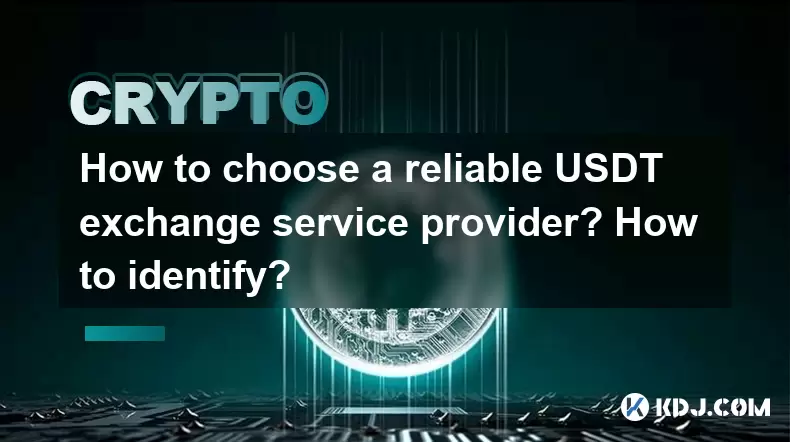
How to choose a reliable USDT exchange service provider? How to identify?
Jun 12,2025 at 03:15pm
Understanding the Role of USDT in Cryptocurrency TradingUSDT (Tether) is one of the most widely used stablecoins in the cryptocurrency market. It is d...
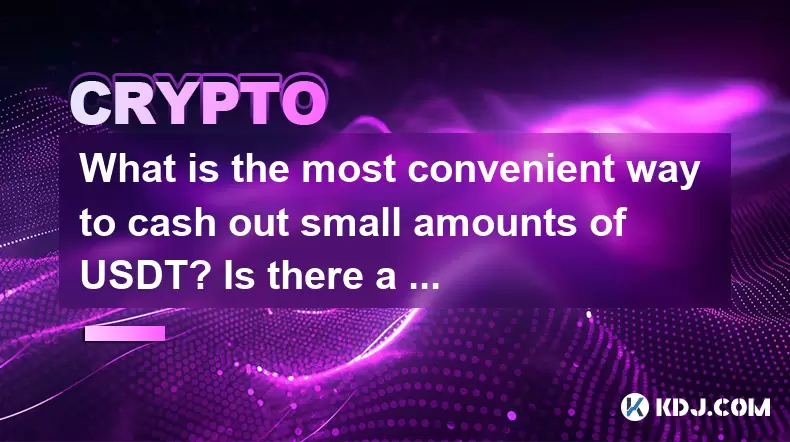
What is the most convenient way to cash out small amounts of USDT? Is there a shortcut?
Jun 11,2025 at 11:00pm
Understanding the Need to Cash Out Small USDT AmountsCashing out small amounts of USDT can be a challenge for many crypto users. Traditional methods o...

How to transfer USDT to PayPal or international payment tools?
Jun 15,2025 at 05:28am
Understanding the Basics of USDT and PayPal IntegrationUSDT (Tether) is a stablecoin pegged to the US dollar, offering blockchain-based value transfer...
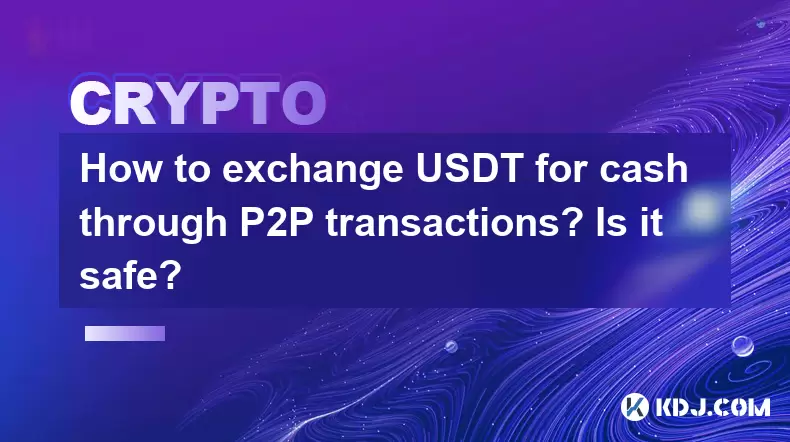
How to exchange USDT for cash through P2P transactions? Is it safe?
Jun 18,2025 at 07:56am
Understanding USDT and P2P TransactionsTether (USDT) is a stablecoin pegged to the value of the US dollar, making it a popular choice for users who wa...
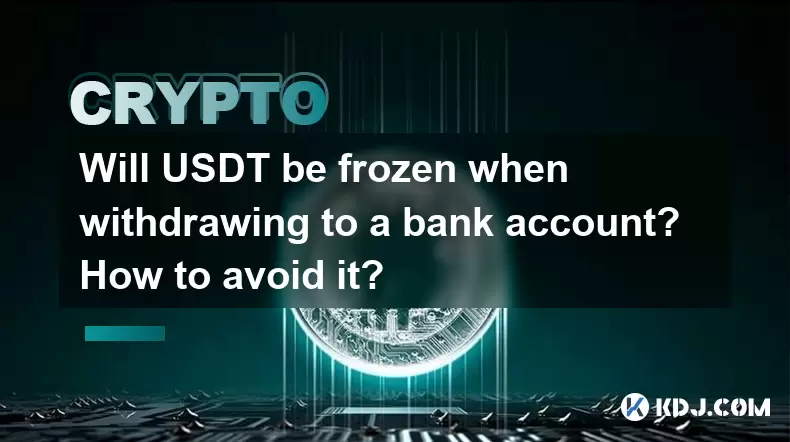
Will USDT be frozen when withdrawing to a bank account? How to avoid it?
Jun 15,2025 at 10:03am
Understanding USDT Withdrawals and Bank Account Freezing RisksWhen users decide to withdraw USDT (Tether) to a bank account, one of the most common co...
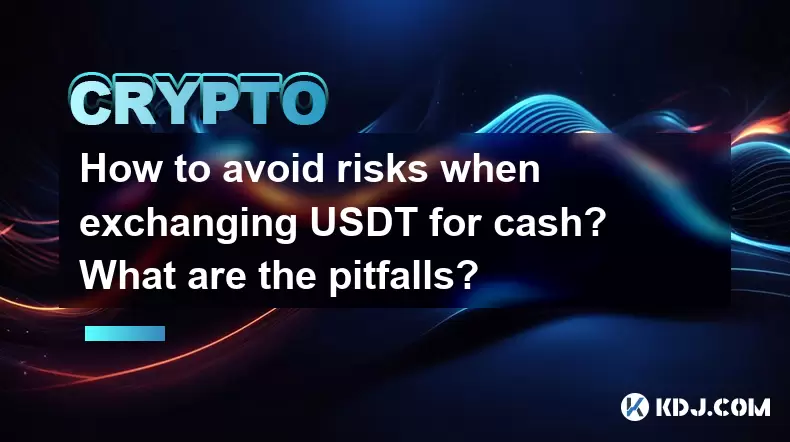
How to avoid risks when exchanging USDT for cash? What are the pitfalls?
Jun 11,2025 at 08:14pm
Understanding the Risks of Exchanging USDT for CashWhen exchanging USDT (Tether) for cash, users must be aware of the potential risks involved. As a s...

How to choose a reliable USDT exchange service provider? How to identify?
Jun 12,2025 at 03:15pm
Understanding the Role of USDT in Cryptocurrency TradingUSDT (Tether) is one of the most widely used stablecoins in the cryptocurrency market. It is d...

What is the most convenient way to cash out small amounts of USDT? Is there a shortcut?
Jun 11,2025 at 11:00pm
Understanding the Need to Cash Out Small USDT AmountsCashing out small amounts of USDT can be a challenge for many crypto users. Traditional methods o...

How to transfer USDT to PayPal or international payment tools?
Jun 15,2025 at 05:28am
Understanding the Basics of USDT and PayPal IntegrationUSDT (Tether) is a stablecoin pegged to the US dollar, offering blockchain-based value transfer...

How to exchange USDT for cash through P2P transactions? Is it safe?
Jun 18,2025 at 07:56am
Understanding USDT and P2P TransactionsTether (USDT) is a stablecoin pegged to the value of the US dollar, making it a popular choice for users who wa...

Will USDT be frozen when withdrawing to a bank account? How to avoid it?
Jun 15,2025 at 10:03am
Understanding USDT Withdrawals and Bank Account Freezing RisksWhen users decide to withdraw USDT (Tether) to a bank account, one of the most common co...

How to avoid risks when exchanging USDT for cash? What are the pitfalls?
Jun 11,2025 at 08:14pm
Understanding the Risks of Exchanging USDT for CashWhen exchanging USDT (Tether) for cash, users must be aware of the potential risks involved. As a s...
See all articles





















![Ultra Paracosm by IlIRuLaSIlI [3 coin] | Easy demon | Geometry dash Ultra Paracosm by IlIRuLaSIlI [3 coin] | Easy demon | Geometry dash](/uploads/2026/01/31/cryptocurrencies-news/videos/origin_697d592372464_image_500_375.webp)




















































